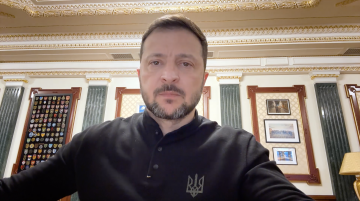The budget revenues of the Russian Federation from the export of oil, gas and coal doubled in the first 100 days of the full-scale war against Ukraine, so it can be stated that the current regime of Western energy sanctions against the Russian Federation is not effective and needs to be strengthened immediately. This was emphasized by Oleg Ustenko, economic adviser to the President of Ukraine, in an article for the Financial Times.
He noted that the sanctions imposed by the West cover less than 5% of pre-war Russian crude oil exports.
“Exports of seaborne crude, though down since mid-June, remain higher than at the start of the invasion. In large part, that is because it has been legal to import Russian oil into the EU and UK, and will remain so until at least December. Every week, some 10 million to 20 million barrels of crude arrive in Europe from Russian ports as traders turn so-called ‘’phase-outs’’ into feeding frenzies,” Oleg Ustenko wrote.
According to him, in the framework of a global “laundering operation”, Russian crude is taken to foreign refineries and then imported into the US as petrol. Once the oil has been refined into other products, it can legally enter any country without breaking sanctions even if there is an outright ban on oil imports.
The continuation of the import of blended Russian oil in the coming months is a significant risk. And, according to the advisor to the President of Ukraine, this trade is likely to continue even after the full ban comes into effect at the end of this year.
“It will be possible because of carve-outs in the rules that will allow companies to import CPC Blend, crude oil that is a mixture of Kazakh and Russian products, transported via a Caspian Sea pipeline,” Oleg Ustenko said.
“These are hardly the embargoes that were expected… The failure to impose a genuine embargo on Russian oil and gas is turbocharging Putin’s revenues and financing war crimes in Ukraine,” he emphasized.
The adviser to the Head of State noted that to a certain extent the current high prices for energy carriers reflect traders' expectations of increased restrictions on Russian oil. At the same time, he noted that West Texas Intermediate and Brent crude oil prices have been steadily declining since early June, just as Russian crude exports began to decline. So Oleg Ustenko rejected the claim that current oil prices are the result of minimal restrictions imposed by Western governments on Russian fossil fuel exports.
According to him, much more responsibility for the rise in energy prices lies with the big energy companies, which have made huge profits over the past six months.
According to the President's adviser, anyone who is serious about supporting Ukraine should stop funding the regime of Vladimir Putin.
“Business as usual serves only to prolong the war, which has hamstrung the entire global economy. The most effective solution must include a complete and immediate embargo on Russian fossil fuels in Europe and the rapid enactment of G7 proposals for a global price cap on Russian oil,” Oleg Ustenko emphasized.



